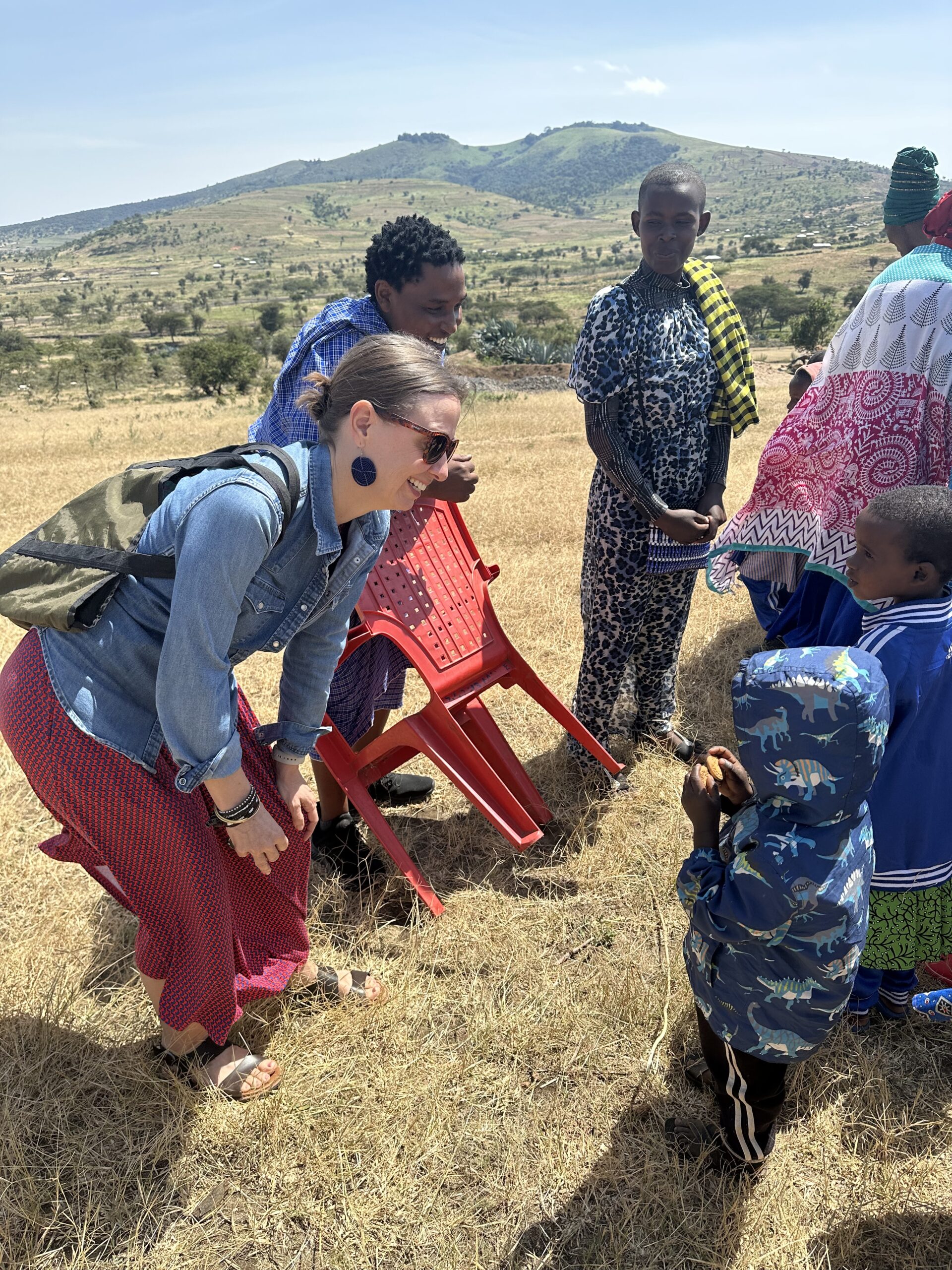Researching the Intersection of Climate Change and Education
As an undergraduate at Luther, Laura Wangsness Willemsen ’97 had no idea that studying abroad in Tanzania in 1995 would shape her future. Not only did the East African country—home to the continent’s highest mountain, Kilimanjaro, and an array of wildlife—capture her heart, but it’s also been integral to her career over the past three decades. Most recently, she spent the 2023–24 academic year there as a Fulbright Scholar researching how climate change is reshaping education.

Laura Wangsness Willemsen ’97 and Musa Kamaika (both at left) with community members and preschool children in Eluwai, Monduli Juu
“We need to know what’s happening in these areas of the world where climate change has accelerated social change,” says Laura. “We know it’s impacting schools, but we don’t fully understand how. Some of what we thought we would see, we saw, and sometimes those were hard stories.”
Laura, an associate professor of education at Concordia University, first noticed the effects of climate change while teaching English in Tanzania in the late ’90s. At the time, she says, people thought the dramatic weather changes like extreme droughts and flooding were “flukes.” Unfortunately, they weren’t, and those extremes have shaped education there today.
“When crops fail, kids drop out of school,” she says. “Boys in secondary school might be tasked with going home to find work rather than pay for school fees. For young women, if their family doesn’t have school fees, they might marry earlier. You see more illness, students missing class to fetch water. All these things showed up in our Fulbright research.”
Tanzanian Musa Kamaika, a longtime cultural guide and translator from the Maasai tribe who also co-leads a Luther study-away program in the village of Monduli Juu, assisted with Laura’s Fulbright research to understand how the people of northern Tanzania have innovated as climate change accelerates. They were struck by the incredible ways in which people, including teachers, care for one another as they face unpredictable environmental challenges.
“If a student comes to school without shoes, a notebook, a school uniform, soap, or any of the basic stuff that you need, teachers will pull together their meager resources and ensure that the student has what they need,” she says. Laura is familiar with the power of teachers. Her parents—Robert ’70 and Diane [Rathmell] Wangsness ’71—spent their careers as teachers, and their three daughters all became teachers.
“I want my work to be in service of Tanzanian people and schools,” she says. “This all started in 1995, and I’ve kept so many of those connections. I wouldn’t have had my experience in Tanzania without Luther. It’s not an overstatement to say that those Luther roots have shaped who I am.”